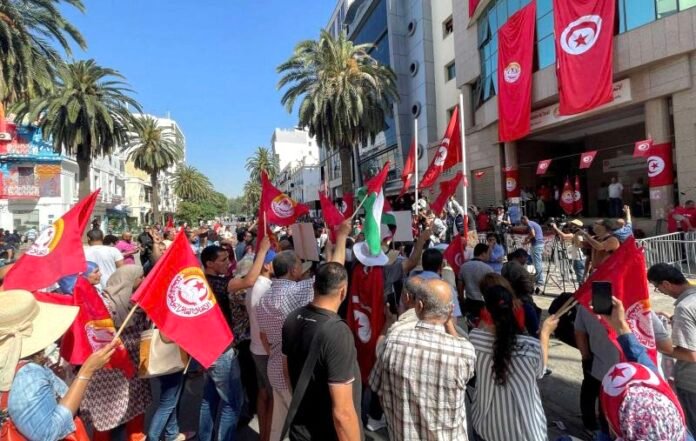Tunisia’s banking system came to an abrupt standstill on Monday after thousands of employees across public and private banks launched a two-day nationwide strike, demanding salary adjustments to match the country’s rapidly rising cost of living. The strike has halted all banking transactions, including in-branch services, cheque clearances, and electronic processing — with long queues forming at ATMs, many of which were already out of service as the stoppage began.
The strike was called by Tunisia’s strongest labour federation, the UGTT, after negotiations with the banking employers’ council collapsed. The union says inflation and persistent shortages have sharply reduced the purchasing power of workers across every sector, including banking, and is calling for “immediate and meaningful” wage increases indexed to inflation.
Tunisia’s economy has been under intense pressure for years. Foreign investment has declined, essential goods such as medicines have become scarce, and public debt has climbed above 80% of GDP. International lenders, including the IMF, have hesitated to release major funding packages without governance and reform guarantees, further tightening the country’s financing ability.
The UGTT strike comes at a time of heightened political tension. Since President Kais Saied took sweeping powers in 2021, human rights groups and foreign governments have accused his administration of silencing critics, dismantling checks and balances, and targeting civil society actors. Just last week, the government suspended the activities of three local NGOs, while dozens of opposition figures and lawyers have been detained in recent months.
Addressing bank workers gathered outside the UGTT headquarters in Tunis, union leader Noureddine Taboubi warned that labour rights are now being threatened alongside basic civil liberties.
“Bank employees are not only fighting for fair pay — they are fighting for their dignity,” he said.
Ordinary Tunisians say they feel every layer of the crisis in their daily lives. “We can’t access cash easily, we can’t find certain medicines, and prices keep rising,” said Tunis resident Imen Ben Slama. “Everything is becoming impossible.”
Government officials did not immediately comment on the industrial action. Union representatives say they are prepared for further mobilisation if talks do not resume with credible wage proposals on the table.
Source:Africa Publicity








